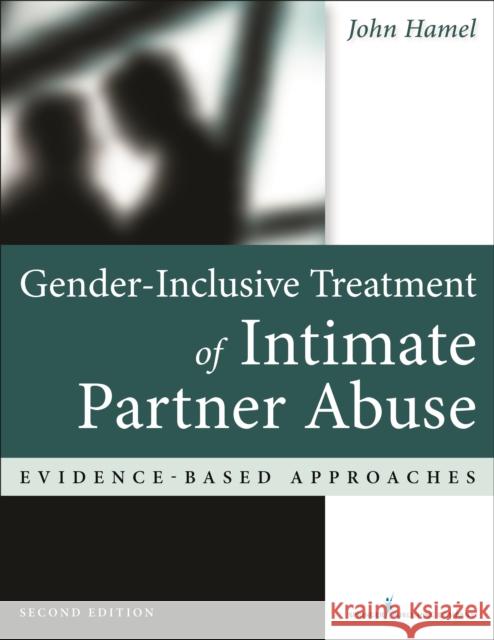Gender-Inclusive Treatment of Intimate Partner Abuse: Evidence-Based Approaches » książka
Gender-Inclusive Treatment of Intimate Partner Abuse: Evidence-Based Approaches
ISBN-13: 9780826196774 / Angielski / Miękka / 2013 / 412 str.
Praise for the second edition: The NASW Code of Ethics demands that we adhere to ethical principles such as service, social justice, dignity and worth of a person, importance of human relationships, integrity, and competence. Hamel is clearly demonstrating a knowledge and application of all of these principles, which can be evidenced through his text. This is a must-have text for social workers who strive for excellence within our field and want to see progress within the domestic violence treatment field." -- The New Social Worker Praise for the first edition: "A comprehensive assessment and treatment handbook that addresses the complexities of violence by men and women in intimate relationships. The appendix includes many excellent assessment forms and patient exercises professionals can utilize to augment their treatment approach." -Daniel J. Sonkin, PhD
Author of Learning to Live Without Violence: A Handbook for Men "Finally, a 'how to' guide to abuse that recognizes just how key the dynamic within the couple can be in predicting and perpetuating violence. This step-by-step approach will help both professionals and the people involved in violent relationships to think honestly about these issues. Hats off to Hamel who has developed the manual for responding to this complex problem." -Linda G. Mills, PhD, JD, MSW
Professor of Social Work, Public Policy, and Law, NYU I recommend this book as a 'must read' for anyone interested in understanding domestic violence and everyone working as a family counselor." -Dr. William A. Stacey, Professor, University of Texas at Arlington "The book presents a completely new approach to domestic violence: the gender-inclusive approach. Sound research has documented that both sexes play important roles in the causes and treatment of partner abuse, and this exciting book shows how. This book leads the way to making domestic-violence reduction a realistic goal, at last This is the best book I have read on the topic of domestic violence treatment√>=it combines a sound evidence base with creative clinical practice." -Terrie Moffitt, PhD, Professor of Psychology at the University of Wisconsin, Madison, and Institute of Psychiatry, London, UK This groundbreaking book on the gender-inclusive treatment of intimate partner abuse has been fully updated to reflect new and refined evidence-based approaches that have evolved since the first edition was published nearly ten years ago. It describes new treatment protocols that are strongly supported by current research that enables mental health practitioners to engage in a more nuanced-and gender inclusive conceptualization and treatment of intimate partner abuse in its many permutations. The book eschews the field's previous reliance on traditional domestic violence and treatment protocols to offer new paradigms that reflect the trend toward a more balanced, evidence-based and less heteronormative conceptualization of partner abuse. It presents the latest findings from the third installment of the Partner Abuse State of Knowledge Project. Included are new examples of evidence-based programs currently in existence and those that are in formative stages, fully updated exercises and handouts, new risk assessment instruments, and new definitions of evidence-based treatment. Of special note are several new appendices that include updated assessment forms, a victim safety plan, client workbook guidelines and exercises, resources and programs for court-ordered clients, and exercises for high conflict family violence parent groups. In addition, a new assessment protocol will be available as a free download. New to the Second Edition:
- Includes the latest findings from the Partner Abuse State of Knowledge Project
- Presents most current literature on risk assessment instruments
- Provides new definitions of evidence-based treatment regarding degree of rigor along with outcome data and newest relevant studies
- Discusses promising new group programs
- Includes a new assessment tool available as free download
- Describes several new, evidence-based gender-inclusive approaches
- Offers comprehensive appendices that reflect recent advances including new assessment forms, a victim safety plan, client workbook guidelines and exercises, resources and programs for court-ordered clients, and exercises for high conflict family violence parent groups











